detail profile magda vizca c3 adno

Riwayat Hidup
Daughter of José de Jesús Vizcaíno, one of the most prolific writers of the golden age of radio in Mexico.
Since the beginning of her career, her voice has accompanied the history of Radio UNAM, Radio Educación, IMER, XEW and XEQ.
Graduated from INBA and CUT, she was part of the National Theater Company of UNAM, which with the plays Divinas Palabras (dir.
Juan Ibáñez) and Olímpica (dir.
Héctor Azar) toured various cities in Europe during 1964 and 1965, winning multiple awards.
For the play La Ronda de las Arpías (dir.
Mercedes de la Cruz, Pablo Leder) she was recognized as Best Supporting Actress in 1991.
Throughout her life she has participated in dozens of plays.
On television, her first role was as a storyteller on a program that was broadcast every Sunday on Channel Five.
Later she participated in teletheaters, soap operas and educational programs, among which Santa (Miguel Sabido) and Fonda Susilla stand out.
In cinema, she started with films such as Para servir a usted, Maten al león and Los indolentes by José Estrada and Divinas Palabras and A Fuego Lento by Juan Ibáñez.
Her voice was immortalized as the narrator of the classic El grito, México 1968, by Leobardo López Arretche.
With her performance in Martha, by Marcelino Islas, which debuted at the Venice Critics' Week, she conquered audiences around the world and was recognized in Mexico with the Ariel for Best Actress.
In 2019, she starred in Encuentro, by Ivan Löwenberg, becoming one of the eldest actresses ever to portray an LGBT+ character.
Info Pribadi
Peran Yang Di Mainkan Magda Vizcaíno
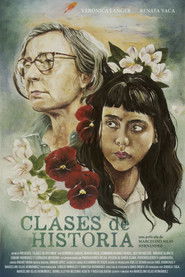 Vernica a middleaged highschool history teacher...
Vernica a middleaged highschool history teacher...History Lessons 2018
Verónica, a middle-aged highschool history teacher, leads a non eventful life: she has grownup children, grandchildren and a less than perfect marriage. This dynamic seems to be the only thing she can hold on to, as she battles a terminal illness. As she reluctantly accepts her fate, she meets Eva, an irreverent and misunderstood new student who unknowingly injects some life and enthusiasm back into her and provides her with the tools to deal with her destiny.
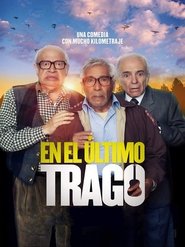 Three octogenarians set out on a...
Three octogenarians set out on a...One for the Road 2015
Three octogenarians set out on a trip in order to fulfill the dying wish of a lifelong friend, in spite of the disapproval of their families and the limitations of their advanced age. Along the way, they find themselves embroiled in a series of comedic misadventures and meet a cast of colorful characters. Their journey fundamentally alters each characters' sense of self and their place in the world. There is, indeed, life after 80.
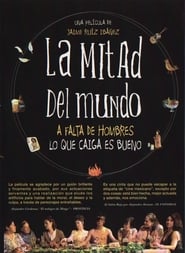 The story is about a young...
The story is about a young...Half of the World 2011
The story is about a young man suffering mental retardation and sexual awakening, poet is charismatic and has the ability to pay attention to those little insignificant details of everyday life. His new status as a lover will bring popularity and with it problems will expose prejudice and false morality of a blinded people to wash their sins charged with the death of the less guilty.
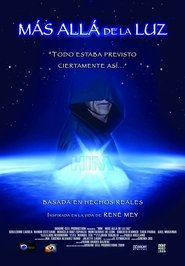 Nathan is a very gifted Mexican...
Nathan is a very gifted Mexican...HIM: Beyond the Light 2010
Nathan is a very gifted Mexican scientist specializing in cellular biology. He is a very withdrawn man, good, solitary and helpful, who has a secret passion for Maya, one of his colleagues at work. But soon their lives are shaken by an encounter with Jacques, a man with supernatural powers.
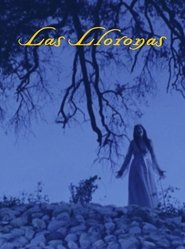 Las Lloronas is an adaptation of...
Las Lloronas is an adaptation of...Las lloronas 2004
"Las Lloronas" is an adaptation of the legend of "La Llorona"(Weeping Woman). It's based on the story of three generations of women within a Mexican familiy. Cursed by la llorona, these women fight to overcome the situations that arise by this. Through the struggles that these women face, they must eventually come to terms with destiny. "Las Lloronas" is a story of love, loss and triumph of the spirit, as well as the inner strength that each women has within.
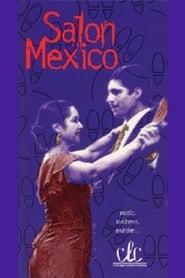 In this remake of the 40s...
In this remake of the 40s...Salón México 1996
In this remake of the 40's classic, two lovers murder each other, leading to an investigation and the closing of the Saln Mxico, a famous place where people used to go to dance before WWII. The police investigation leads to several flashbacks about the life and death of a low-life dancer named Mercedes (Maria Rojo) and her lover.
 Three episodes 1 A Christmas dinner where...
Three episodes 1 A Christmas dinner where...Pubertinaje 1978
Three episodes: 1) "A Christmas dinner" where the family members fantasize about being somewhere else. The fetishist father wants to put on feminine clothes. The son longs for another transvestite adventure. The daughter yearns to be a singer and destroy the saints of the church with her voice. The youngest son wants to stab everyone dead. 2) "Game of mirrors". Two young classmates kiss on a picnic, but the girl's brother accuses the couple of being immoral. Bizarre things develop. 3) "Tetrahedron". A very fat man faces his girlfriend's longing for love.
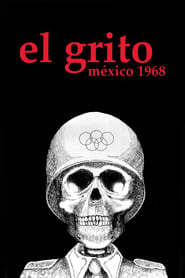 In the summer of revolt 1968 student...
In the summer of revolt 1968 student...El grito 1968
In the summer of revolt 1968, student Leobardo López Aretche captured the protests in Mexico City, and the state’s brutal response, up close – and like many of his subjects and fellow comrades, would pay a high price for his audacity. Fifty years later, his movie is no longer a secret.
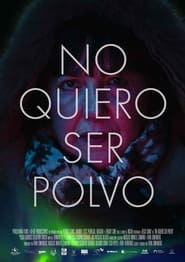 Bego a housewife in a midlife...
Bego a housewife in a midlife... Martha is a 75year old woman...
Martha is a 75year old woman... Mexican feature film
Mexican feature film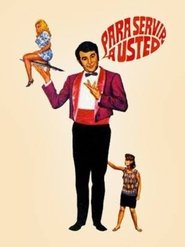 Workingclass dude gets a gig as...
Workingclass dude gets a gig as...